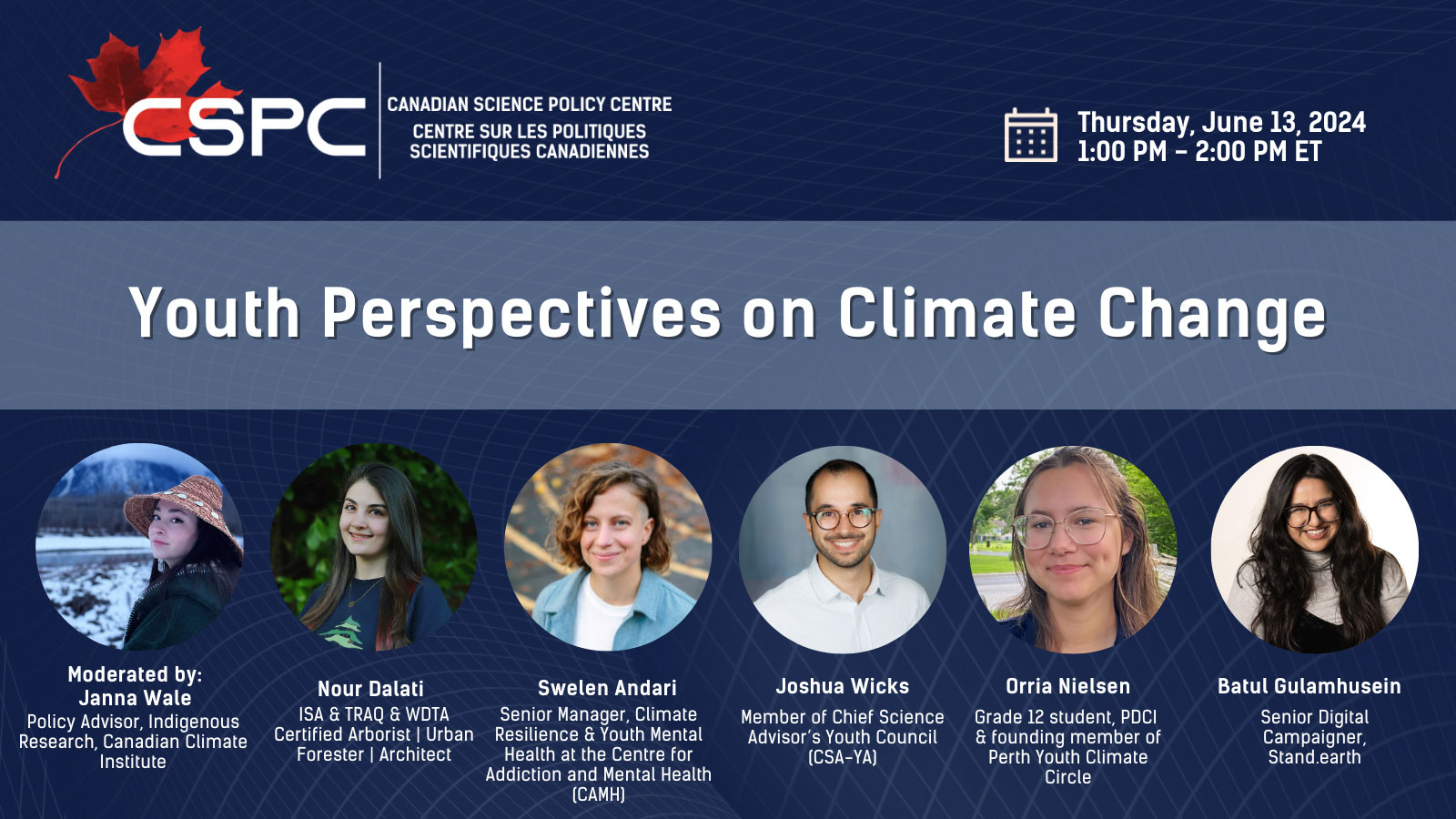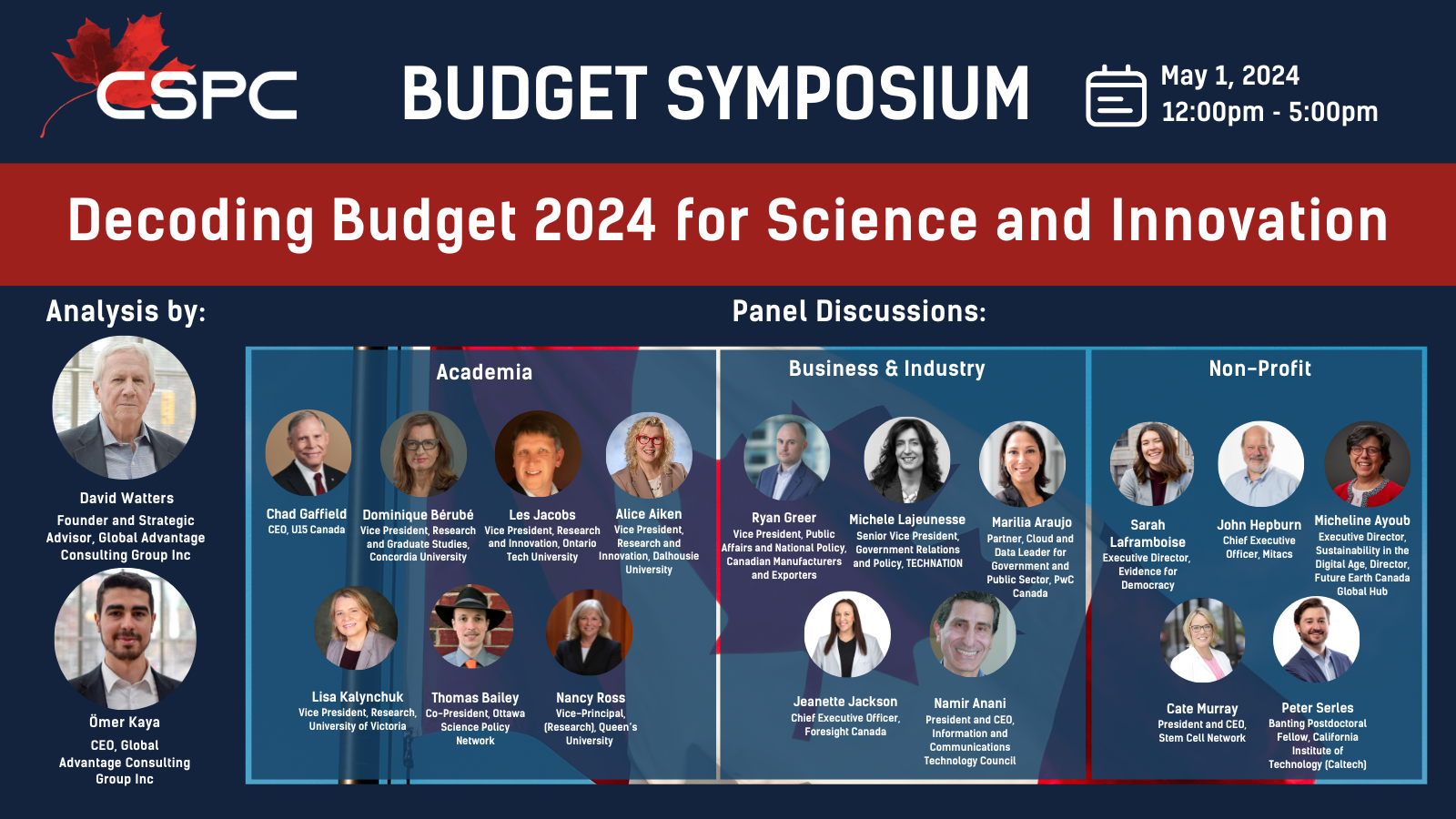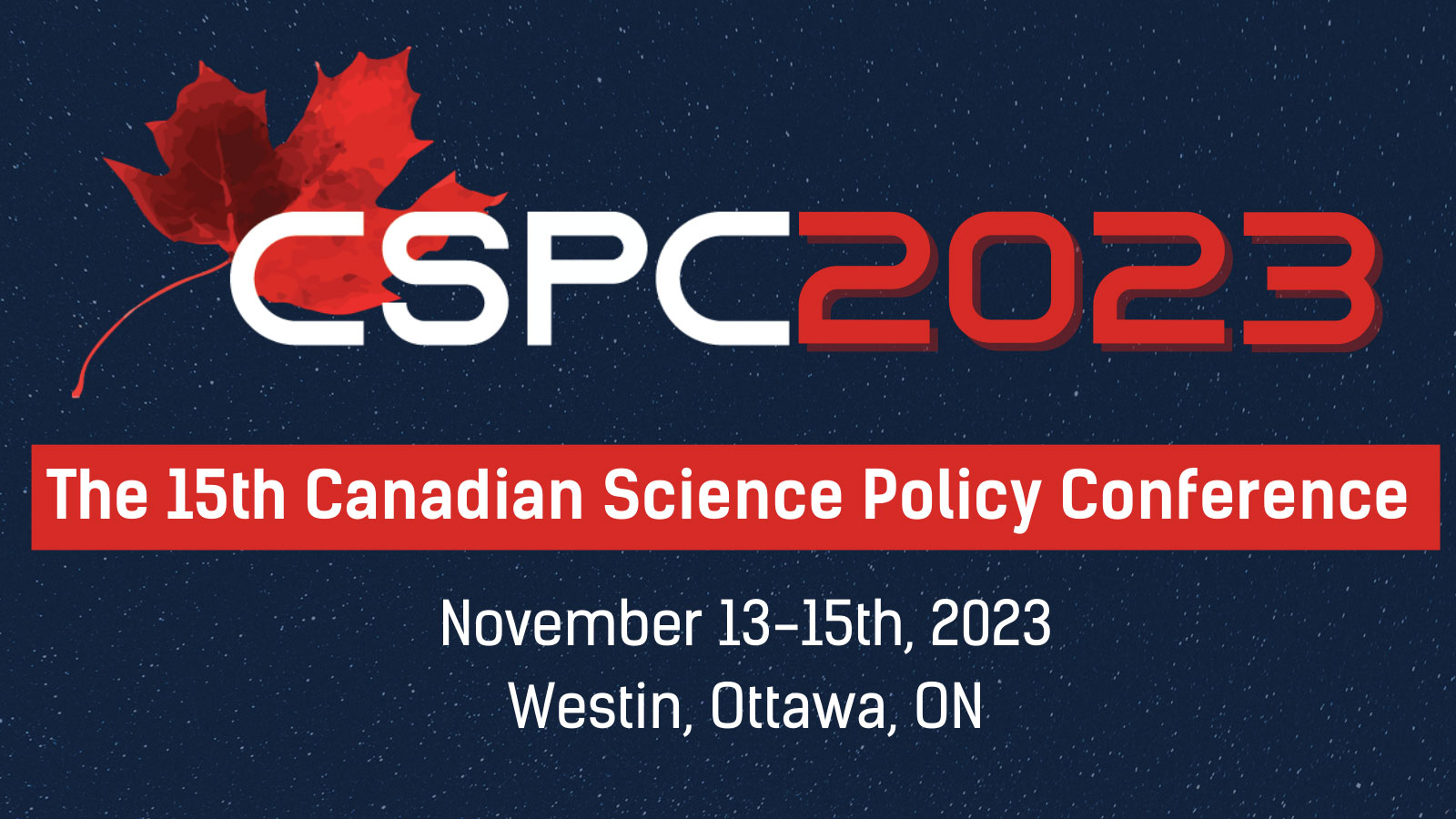Latest Past Events
Youth Perspectives on Climate Change
ZoomWatch video Canada’s rate [...]
CSPC Budget Symposium 2024
ZoomWatch video The federal government [...]
Canadian Science Policy Conference 2023
The Westin Ottawa Hotel 11 Colonel By Dr, OttawaJoin the most comprehensive science and innovation policy conference [...]
All Events




